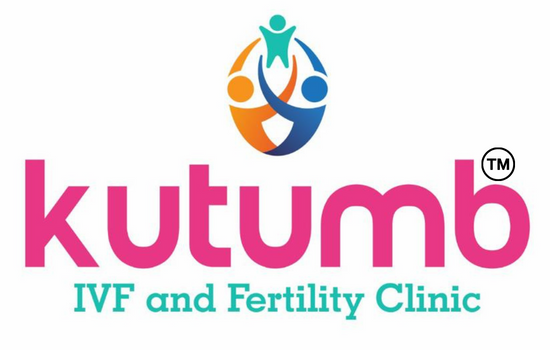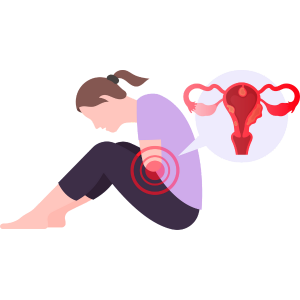 What are Fibroids?
What are Fibroids?
Fibroids, also known as uterine leiomyomas or myomas, are noncancerous growths that develop in the uterus. They are made up of muscle and fibrous tissue and can vary in size, ranging from small seedlings that are undetectable by the human eye to large masses that can distort the shape of the uterus.
Fibroids can be classified based on their location in the uterus:
Subserosal fibroids: These develop on the outer wall of the uterus and can grow to be quite large.
Intramural fibroids: These are located within the muscular wall of the uterus and can cause the uterus to enlarge.
Submucosal fibroids: These grow into the inner cavity of the uterus and can lead to heavy menstrual bleeding and other complications.
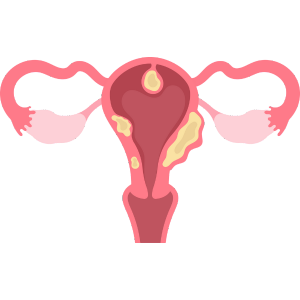 How can Fibroids Affect Fertility?
How can Fibroids Affect Fertility?
The impact of fibroids on fertility can vary depending on several factors, including the size, number, and location of the fibroids. Here are some ways in which fibroids can affect fertility:
Distortion of the Uterine Cavity: Submucosal fibroids that grow into the inner cavity of the uterus can disrupt the implantation of a fertilized egg, leading to difficulties in conception or early pregnancy loss.
Blockage of Fallopian Tubes: Large fibroids or multiple fibroids can press against the fallopian tubes, obstructing the passage of sperm or eggs and interfering with the fertilization process.
Changes in Uterine Blood Flow: Fibroids can alter the blood flow to the uterus, affecting the development of the uterine lining necessary for embryo implantation.
Impact on Endometrial Receptivity: Fibroids may affect the receptivity of the endometrium (uterine lining) to embryo implantation, reducing the chances of successful pregnancy.
Miscarriage Risk: Fibroids, especially submucosal ones, are associated with an increased risk of miscarriage, particularly in early pregnancy.
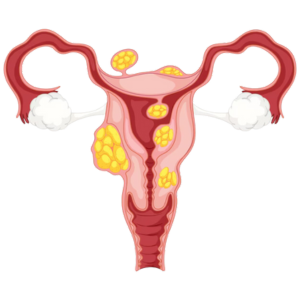 Types of Fibroids and Their Impact
Types of Fibroids and Their Impact
Fibroids are non-cancerous growths that develop in the uterus. They can vary in size, number, and location, and their impact on fertility depends on several factors. Here are the main types of fibroids and how they can affect fertility:
Submucosal Fibroids: These fibroids develop in the inner lining of the uterus (endometrium) and can protrude into the uterine cavity. They are often associated with infertility as they can interfere with implantation or cause early pregnancy loss.
Intramural Fibroids: These fibroids grow within the muscular wall of the uterus and can increase in size, distorting the uterine cavity. Larger intramural fibroids can affect fertility by altering the shape of the uterus, potentially hindering embryo implantation.
Subserosal Fibroids: Subserosal fibroids develop on the outer wall of the uterus and may grow outward. While they are less likely to impact fertility directly, large subserosal fibroids can put pressure on surrounding organs, leading to discomfort and complications that may affect fertility indirectly.
Pedunculated Fibroids: These fibroids are attached to the uterus by a stalk or stem. Their impact on fertility depends on their size and location. If a pedunculated fibroid compresses or distorts the fallopian tubes, it can interfere with the passage of eggs, potentially leading to infertility or difficulties in conceiving.
The impact of fibroids on fertility can also be influenced by their number, size, and location. Multiple or large fibroids that distort the uterine cavity are more likely to affect fertility compared to small or fewer fibroids located away from the uterine lining.
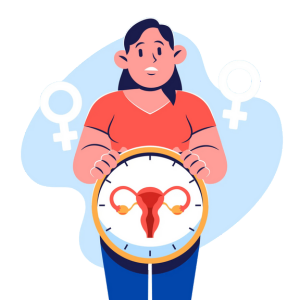 Symptoms of Fibroids Related to Infertility
Symptoms of Fibroids Related to Infertility
Fibroids can cause various symptoms that may be related to infertility or indicate underlying reproductive issues. Some common symptoms include:
Menstrual Irregularities: Fibroids can cause heavy, prolonged periods (menorrhagia), irregular menstrual cycles, or spotting between periods. These menstrual changes may signal hormonal imbalances or structural abnormalities in the uterus that can affect fertility.
Pelvic Pain or Pressure: Large fibroids or those pressing on nearby organs can cause pelvic pain, pressure, or discomfort. Chronic pelvic pain may interfere with sexual intercourse or make it uncomfortable, potentially impacting fertility.
Difficulty Conceiving: While fibroids alone may not always cause infertility, they can contribute to difficulties in conceiving, especially if they affect the uterine cavity, disrupt the endometrium, or block the fallopian tubes.
Recurrent Pregnancy Loss: Submucosal fibroids, in particular, are associated with an increased risk of recurrent pregnancy loss or miscarriages. These fibroids can interfere with embryo implantation or proper development during early pregnancy.
Urinary Symptoms: Fibroids pressing on the bladder can lead to frequent urination, urgency, or difficulty emptying the bladder completely. Similarly, fibroids compressing the rectum may cause constipation or discomfort during bowel movements.
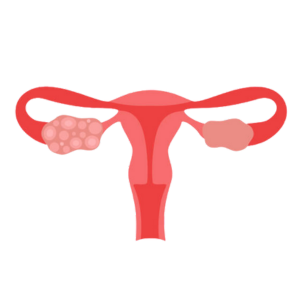 Diagnosis and Evaluation of Fibroids
Diagnosis and Evaluation of Fibroids
Fibroids, also known as uterine leiomyomas, are noncancerous growths that develop in the uterus. They can vary in size and number and are commonly found during a pelvic exam or imaging tests such as ultrasound or MRI. To evaluate fibroids, doctors may also perform a hysterosalpingogram (HSG) to check for blockages in the fallopian tubes or a hysteroscopy to examine the uterine cavity.
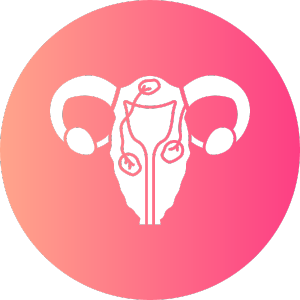 Treatment Options for Fibroids and Infertility
Treatment Options for Fibroids and Infertility
The impact of fibroids on fertility depends on factors such as their size, number, and location. Treatment options for fibroids and infertility include medication to manage symptoms, minimally invasive procedures such as uterine artery embolization (UAE) or myomectomy to remove fibroids, and in vitro fertilization (IVF) for couples facing infertility due to fibroids. Individualized treatment plans are essential to address both fibroids and fertility concerns effectively. If you’re in Vizag and facing fertility issues related to fibroids, consulting with an infertility specialist in Vizag can provide personalized guidance and treatment options tailored to your needs.
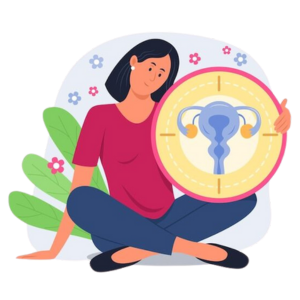 Improving Fertility with Fibroids
Improving Fertility with Fibroids
Fibroids can impact fertility, but their effect varies depending on factors like size, number, and location. Small fibroids that don’t obstruct the uterus or fallopian tubes may not significantly affect fertility. However, larger fibroids or those inside the uterine cavity can interfere with implantation or block sperm movement. Treatments like myomectomy or assisted reproductive techniques can improve fertility in cases where fibroids are a concern.
Conclusion
Fibroids can indeed cause infertility in some cases, depending on their size, number, and location within the uterus. They can interfere with the implantation of the fertilized egg or disrupt the blood flow to the uterus, affecting fertility. However, not all fibroids lead to infertility, and treatment options vary depending on the individual’s situation.
As for the best infertility treatment in Vizag, it’s essential to consult with a fertility specialist who can assess your specific condition and recommend the most suitable treatment plan. Vizag, also known as Visakhapatnam, likely has several fertility clinics and specialists who can provide personalized care and advanced treatments for infertility.
